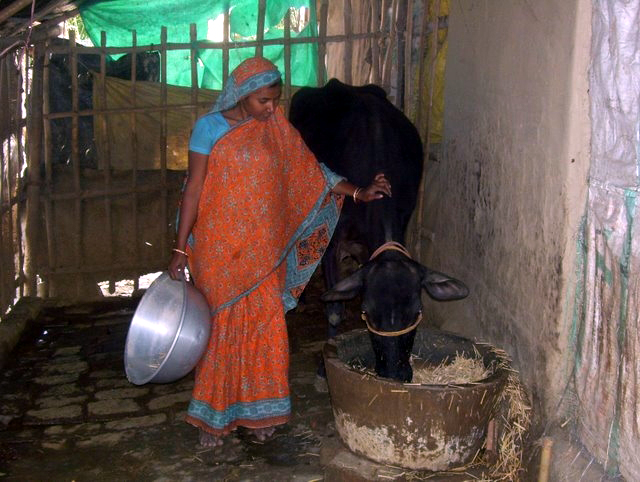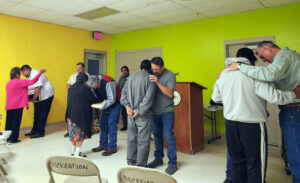
KOLKATA, India (BP)–A dozen widows and abandoned women in India’s West Bengal state are now better able to care for their families, thanks to a Southern Baptist development project that drew on $22,000 from the Southern Baptist World Hunger Fund.
The project focused on women in two villages who were living in desperate poverty, some with small children who were suffering from malnutrition. Because they were members of a minority religious group, many of their neighbors looked down on them and would not help.
A Southern Baptist field partner who had seen the plight of these families believed their lives could be dramatically improved if the women were given a dairy cow and shown how to care for it. Not only would the assistance demonstrate Christ’s compassion for all people, but it also could be done for as little as $80 per family.
“The gift of a cow to a desperately poor family is an appropriate expression of Christian charity and a tangible demonstration of the love of Christ,” said the field partner, who asked that his name be withheld for security reasons. “A donated dairy cow would significantly improve the economic viability of the recipient family. They would have little difficulty in caring for the cow and have ready access to food and veterinary care. A year-round market exists for milk and local vendors roam the area looking for villagers willing to sell milk.”
Helping a poor family earn some modest income by selling milk would improve their lives and give them opportunities in turn to help others.
Working with community leaders and local Christians, the field partner identified households headed by women who had no reliable source of income and were finding it difficult to educate and feed their children. Each family was given a dairy cow and a newborn calf and shown how to care for them. The project provided food and veterinary care for the animals and, over the course of six to nine months, proceeds from milk sales reimbursed the cost of purchasing the cattle. Once that was accomplished, the family could build on their dairy business and help find other families who could benefit from the same kind of help.
Although it took longer than expected to find a reliable source of healthy cattle and to secure experienced veterinary care, the first round of the project went very well, the field partner said.
“We have seen significant poverty relief in several families,” he said. “One widow with two children ‘paid off’ her cow quickly and used the income to set up a small shop on a nearby rail platform. One abandoned woman with eight young children now has better food for her family.”
The project opens the door for new economic development that could significantly improve the quality of life and help many families understand God’s love for them and his desire to give them abundant lives full of meaning and hope.
“We feel the project has great potential to impact poverty in the area,” the field partner said. “Any humanitarian project takes on a richer and deeper meaning for its recipients when they participate in the results. We clearly state from the beginning that participation requires something from them, and that they will, in turn, participate in helping other members of their community.”
Women who had freely received were eager to give freely to others themselves, he said.
“We were surprised by how willingly the recipients shared their proceeds with other women and families in the same condition,” he said. “Some of the women learned a great deal about the care of dairy cows and now can use these skills to help themselves and other members of their community.”
–30–
Mark Kelly is an assistant editor with Baptist Press.

















